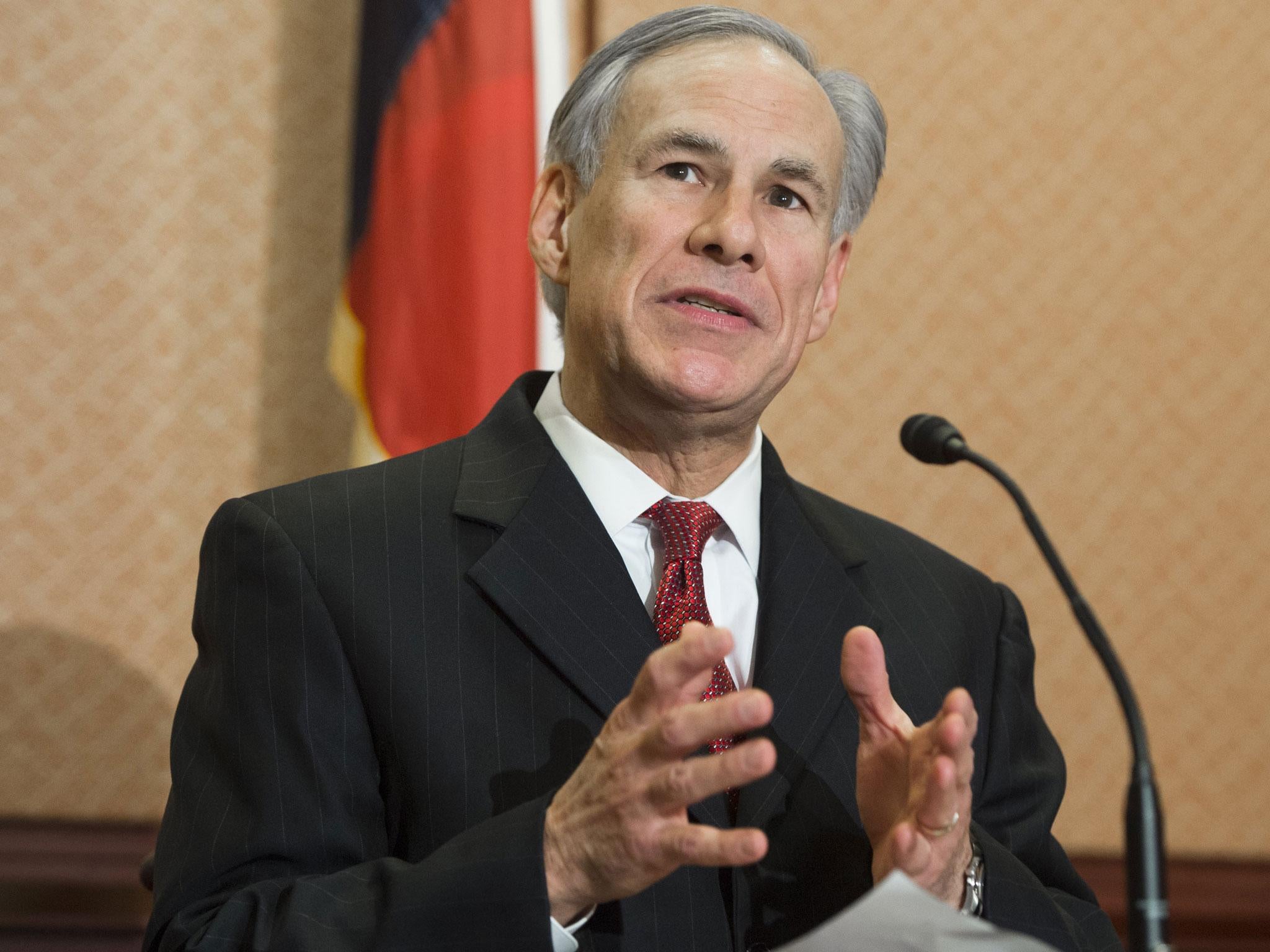Texas to stop helping refugees because they might be terrorists
Gov Greg Abbott plans to reject federal aid to refugees unless Office of Refugee Resettlemnt 'unconditionally approves' extreme vetting in an effort to bar refugees from Syria

Your support helps us to tell the story
From reproductive rights to climate change to Big Tech, The Independent is on the ground when the story is developing. Whether it's investigating the financials of Elon Musk's pro-Trump PAC or producing our latest documentary, 'The A Word', which shines a light on the American women fighting for reproductive rights, we know how important it is to parse out the facts from the messaging.
At such a critical moment in US history, we need reporters on the ground. Your donation allows us to keep sending journalists to speak to both sides of the story.
The Independent is trusted by Americans across the entire political spectrum. And unlike many other quality news outlets, we choose not to lock Americans out of our reporting and analysis with paywalls. We believe quality journalism should be available to everyone, paid for by those who can afford it.
Your support makes all the difference.Texas officials have threatened to withdraw from a federal refugee resettlement program as President Barack Obama announced plans to increase the number of resettlements in the US by 2017.
Citing safety concerns, Texas Gov Greg Abbott said the Office of Refugee Resettlement must “unconditionally approve” the state’s plan to exhaustively screen refugees hoping to enter the US and only accept people who “are fully vetted and do not present a security threat.”
“Despite multiple requests by the state of Texas, the federal government lacks the capability or the will to distinguish the dangerous from the harmless, and Texas will not be an accomplice to such dereliction of duty to the American people,” Mr Abbott said.
Mr Abbott will follow the lead of Kansas and New Jersey and opt out of the funding if the US government does not meet his criteria by 30 September.
Conservative leaders have continuously attempted to block the migration of Syrian refugees since the aftermath of the November attacks in Paris that claimed the lives of 130 people.
The halt to Syrian refugees is a familiar rallying cry for the Republican presidential nominee Donald Trump, who has previously called for an outright ban to Muslims entering the country.
Mr Trump recently linked the bombings in New York and New Jersey to an apparent weakness in the immigration vetting system.
“You can’t have vetting if you don’t look at ideology,” Mr Trump said at a campaign event in Fort Myers, Florida. “Hillary Clinton refuses to consider an applicant’s worldview and thus their likelihood of being recruited into the terror cause at some later date, which is going to happen in many, many cases.”
Echoing the message, Mr Trump’s eldest son and audacious surrogate, Donald Trump Jr, sparked controversy with a tweet on Monday that likened Syrian refugees to a bowl of Skittles candy.
“If I had a bowl of Skittles and I told you just three would kill you, would you take a handful?” the caption, accompanied with an image of a bowl holding the candy, read. “That’s our Syrian refugee problem.”
The suspect charged in the series of explosions and attempted detonations in the two states, 28-year-old Ahmad Khan Rahami, is a naturalised US citizen who was born in Afghanistan. He came to the US in 1995 when his family was granted asylum – which requires a different process than admitting refugees.
Refugees currently go through an admitting process through the State Department that can take up to two years, until they are placed in a specific city and receive assistance finding a home, work, schools for their children, and learning English from area nonprofits.
Should Texas withdraw from the federal refugee resettlement program, the federal government can allocate funding directly to a nonprofit organisation per the US Refugee Act of 1980 – which allows the US to grant a non-state organisation the authority disburse federal refugee funding.
In the 2016 fiscal year, Texas accepted 7,633 refugees. Texas officials the state would only accept that number in 2017, rejecting a 25 per cent increase proposed by the US government.